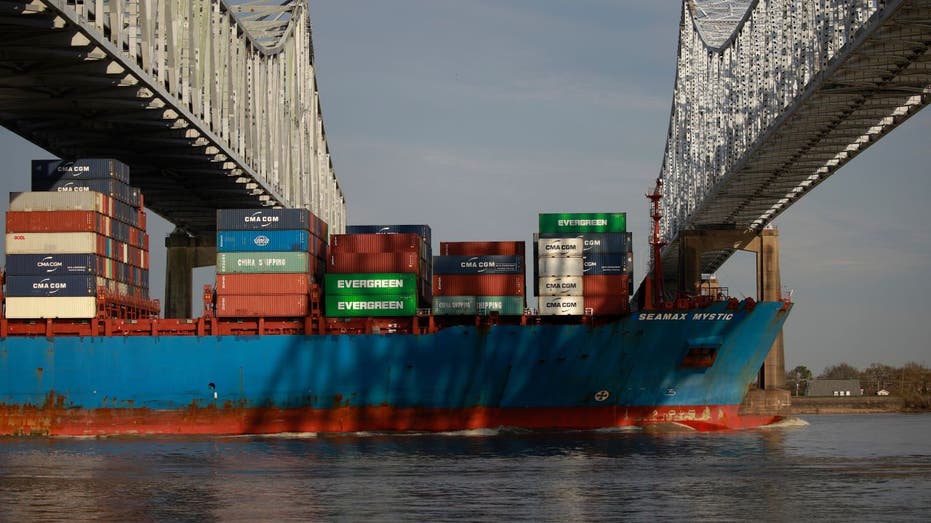Port strike will bring another hit to farmers, says former Trump official
Strike would cost US economy up to $5 billion per day: JPMorgan
Port strikes loom along America's East and Gulf coasts
Rep. Jeff Van Drew, R-N.J., says possible port strikes across America could really 'exacerbate' supply chain problems on 'The Evening Edit.'
The strike by workers at ports from Texas to Maine will reportedly hammer U.S. farmers already dealing with an economic downward spiral.
"We don't need another hit right now. And this is definitely going to have an impact on agriculture," Kip Tom, former United States ambassador to the United Nations Agencies for Food and Agriculture during the Trump administration, told FOX Business.
Unionized dockworkers in the International Longshoremen's Association, which represents 45,000 members at East Coast and Gulf Coast ports, began striking Oct. 1.
LONGSHOREMEN UNION'S DEMAND FOR TOTAL BAN ON AUTOMATION QUESTIONED AS PORT STRIKE LOOMS
The two sides to the labor dispute have been at an impasse over issues including wages and automation at ports.

The Seamax Mystic container ship is shown near the Port of New Orleans on March 3, 2022. (Luke Sharrett/Bloomberg via Getty Images)
A strike would have a domino effect on container availability, storage, rail and truck cargo as well as food supply.
"They’re not going to process more chickens because they don't have them sold or they don't have a place for them to go. They're a perishable item. We can get into beef, pork and dairy at the same time. So, it just backs up the entire supply chain. It comes back to the farmer," Tom said. "What happens is that the market prices go down because you get excess inventory coming on the marketplace."
WHAT PRODUCTS WOULD BE DISRUPTED BY A PORT STRIKE?
An analysis by J.P. Morgan estimated a strike would cost the U.S. economy up to $5 billion per day.
Separately, over 300 farmers and ranchers are pushing for a farm bill to address an industry in decline. Net income for U.S. agriculture is forecast to fall more than 27% or $55.61 billion from 2022, according to the U.S. Department of Agriculture. These stats were highlighted in a letter to Senate and House leadership in September and detailed by the American Farm Bureau Federation.
TAFT-HARTLEY ACT: WHY BIDEN COULD USE THIS LABOR LAW TO PREEMPT PORT STRIKE

Farmer Ken Haas rakes recently cut hay so it will dry before it's bailed on Aug. 11, 2024, in Elizabeth, Ill. (Scott Olson/Getty Images)
"Since the beginning of the year, the harvest price of major crops traded on the Chicago Mercantile Exchange and the Intercontinental Exchange have fallen by an average of 21% while total production costs remain near record levels," the group wrote.
| Ticker | Security | Last | Change | Change % |
|---|---|---|---|---|
| CME | CME GROUP INC. | 307.24 | +4.97 | +1.64% |
| ICE | INTERCONTINENTAL EXCHANGE INC. | 169.48 | +0.48 | +0.28% |

(iStock)
"We're already at a point where we came from under the Trump administration, about [a] $32 billion trade surplus. And now we're expecting a $42 billion deficit going into 2025. So, we're already being hit with a lot of loss of exports from us and good food products," Tom noted.
FOX Business’ Eric Revell contributed to this report.





















